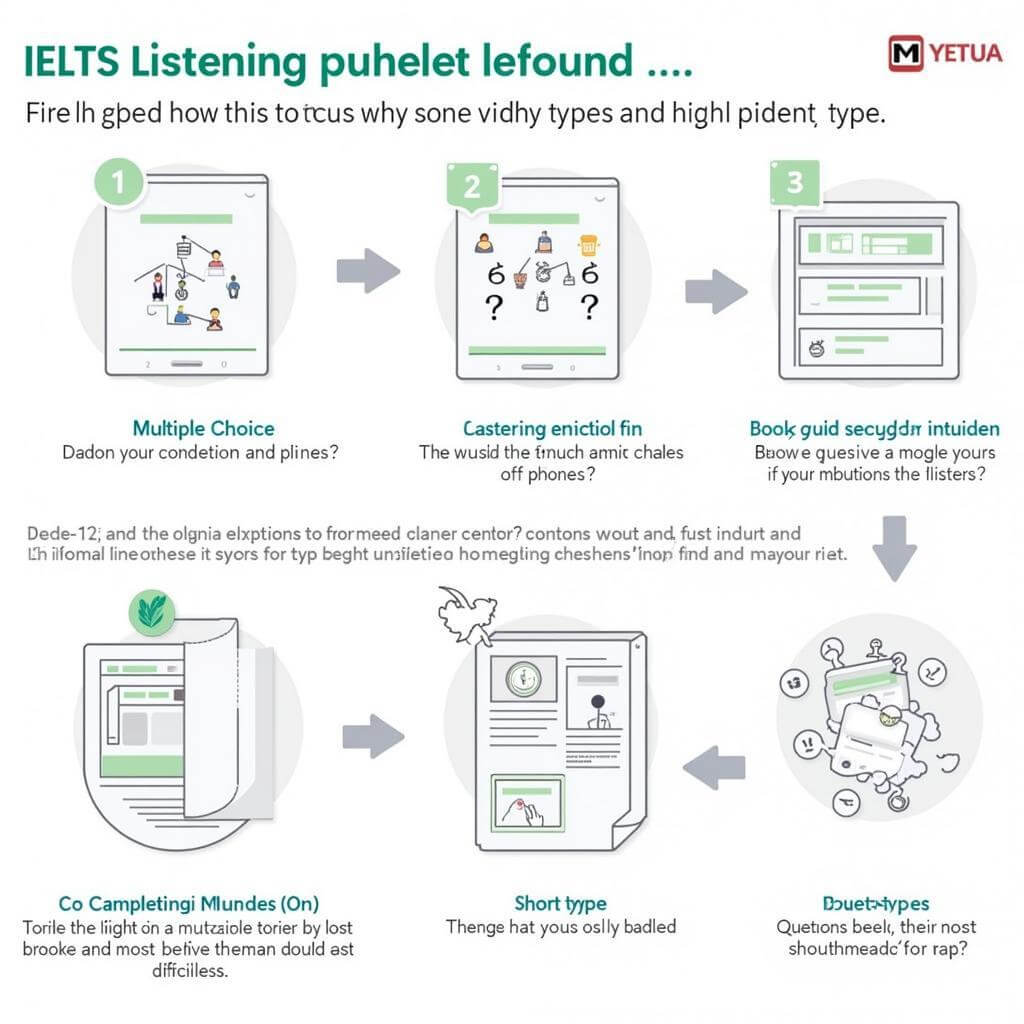The IELTS Listening test is a crucial component of the overall exam, requiring candidates to demonstrate their ability to understand and respond to spoken English quickly and accurately. One of the most challenging aspects of this test is the limited time available to process information and write answers. In this article, we’ll explore effective strategies for improving your response time in IELTS Listening, helping you maximize your score and achieve your desired band.
Understanding the Importance of Quick Response Time
Improving your response time in IELTS Listening is essential for several reasons:
- Limited time between questions
- No repetition of audio
- Multitasking requirements
- Pressure to complete all answers
- Potential for missing subsequent questions
By enhancing your ability to respond quickly, you’ll be better equipped to handle the demanding nature of the IELTS Listening test. Let’s delve into some practical strategies to help you achieve this goal.
Strategies for Faster Response Time
1. Develop Active Listening Skills
Active listening is a crucial skill that can significantly improve your response time. Here are some techniques to enhance your active listening:
- Focus on key words and phrases
- Anticipate information based on context
- Focusing on key details to filter out irrelevant information
- Practice note-taking while listening
By honing these skills, you’ll be able to process information more quickly and efficiently during the test.
2. Familiarize Yourself with Question Types
Understanding the various question types in IELTS Listening can help you prepare more effectively:
- Multiple choice
- Matching
- Plan, map, and diagram labeling
- Form, note, table, flow-chart, and summary completion
- Sentence completion
- Short answer questions
Knowing what to expect for each question type allows you to develop targeted strategies for faster response times.

3. Improve Your Skimming and Scanning Skills
Efficient skimming and scanning of questions before the audio begins can significantly reduce your response time:
- Read questions quickly to identify key information
- Underline or circle important words
- Predict possible answers based on the question context
- Improving attention during group listening by focusing on relevant details
These techniques will help you prepare your mind for the incoming information, allowing for quicker responses.
4. Enhance Your Short-term Memory
Developing your short-term memory can greatly improve your ability to retain and process information quickly:
- Practice memory games and exercises
- Use mnemonic devices
- Chunk information into manageable pieces
- Visualize concepts as you listen
By strengthening your short-term memory, you’ll be able to hold onto important details long enough to formulate your responses efficiently.
5. Master Time Management Techniques
Effective time management is crucial for improving your response time:
- Allocate specific time for each section
- Move on if you’re stuck on a question
- Use any available time to review answers
- Practice with timed mock tests regularly
How to avoid common errors in IELTS listening sections by managing your time effectively and avoiding unnecessary delays in your responses.
Practical Exercises to Improve Response Time
To put these strategies into practice, try the following exercises:
- Timed dictation practice
- Rapid note-taking drills
- Shadow listening exercises
- Speed reading practice
- Quick-fire question and answer sessions
Incorporate these exercises into your daily study routine to see significant improvements in your response time.
Common Pitfalls to Avoid
While working on improving your response time, be aware of these common mistakes:
- Overthinking answers
- Getting stuck on difficult questions
- Neglecting to read ahead
- Panicking when you miss information
- Writing too much unnecessary detail
By recognizing and avoiding these pitfalls, you can maintain focus and respond more efficiently during the test.
Advanced Techniques for Rapid Response
For those aiming for top band scores, consider these advanced techniques:
- Develop a personal shorthand system for note-taking
- Practice with varied accents and speech patterns
- How to enhance focus during group discussions in IELTS listening by simulating real test conditions
- Use contextual clues to predict upcoming information
- Train your ear for connected speech and reduced forms
These advanced strategies can give you the edge you need to excel in the IELTS Listening test.
Adapting to Different Listening Scenarios
The IELTS Listening test includes various scenarios, each requiring a slightly different approach:
- Everyday social contexts
- Educational or training situations
- Academic discussions or lectures
Handling unfamiliar listening formats by practicing with diverse materials will help you adapt quickly to different scenarios, improving your overall response time.
Conclusion
Improving your response time in IELTS Listening is a skill that can be developed with consistent practice and the right strategies. By implementing the techniques discussed in this article, you’ll be well-equipped to handle the challenges of the test and achieve your desired band score. Remember, the key to success lies in regular practice, self-assessment, and continuous improvement. Keep refining your skills, and you’ll see significant progress in your IELTS Listening performance.